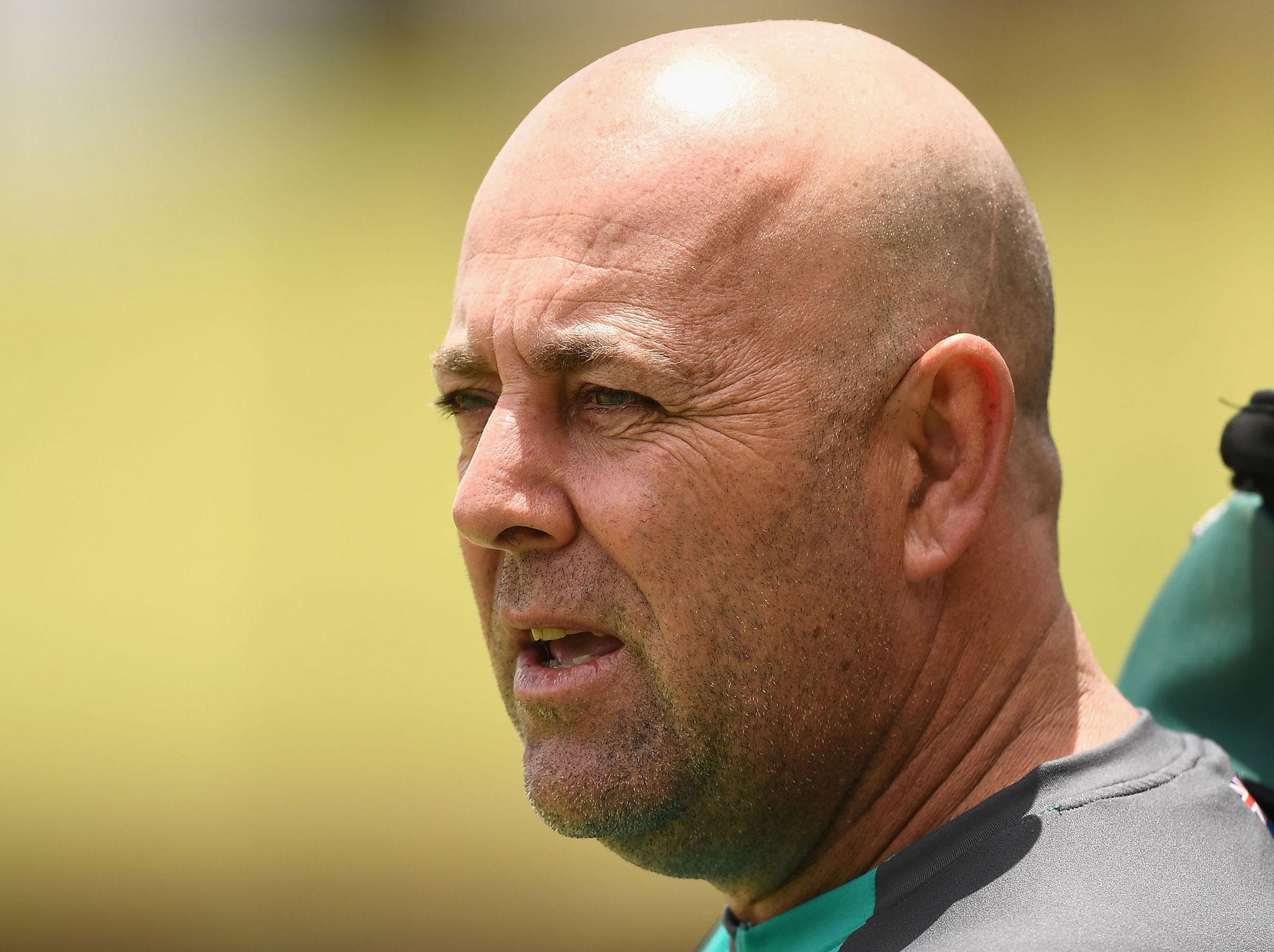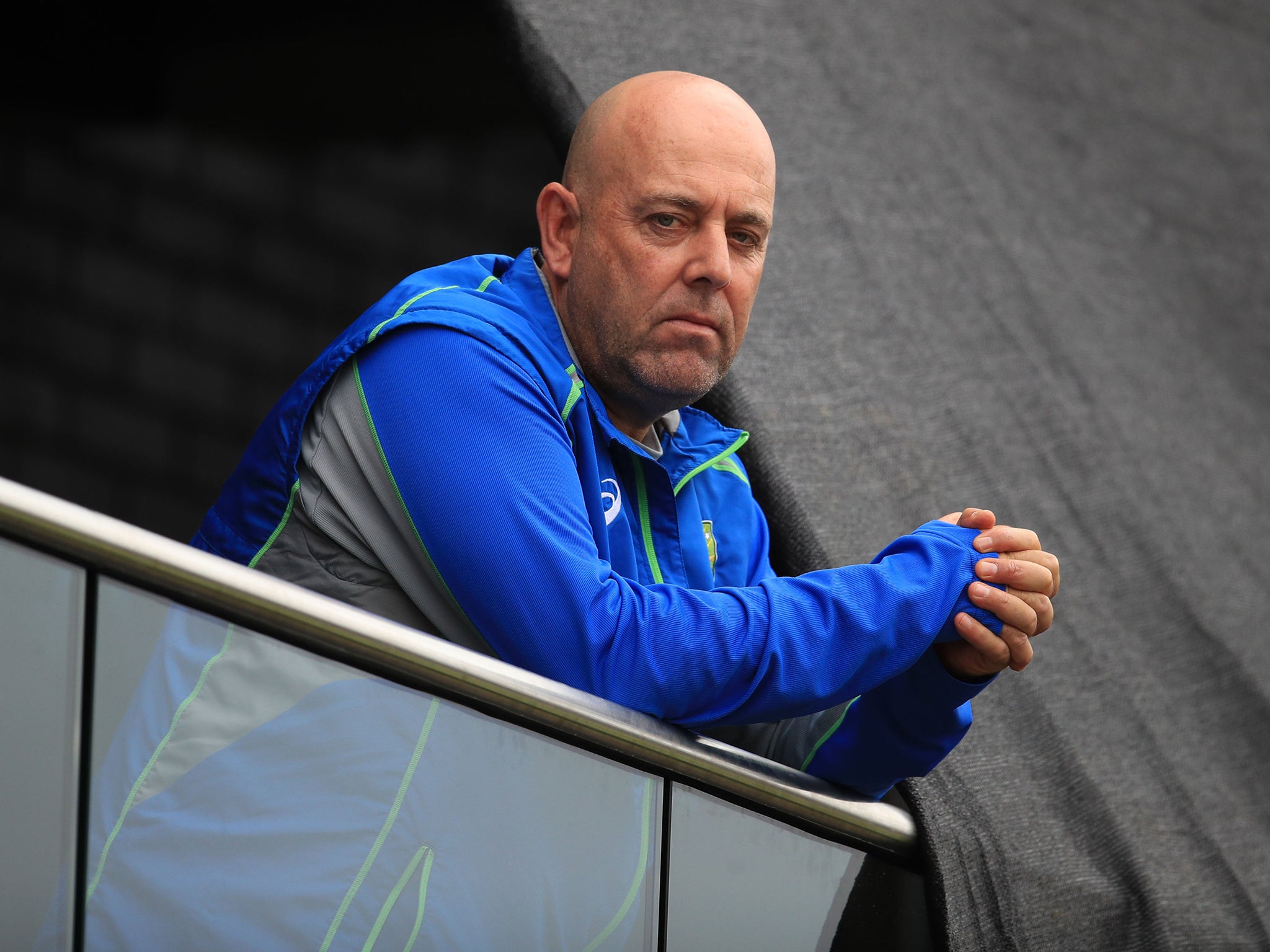Darren Lehmann: The architect of Australia's rise and fall
We should congratulate ‘Boof’ on what he’s achieved, while also accepting that he ultimately bears the responsibility for any team ‘culture’ born out of his tenure

Your support helps us to tell the story
From reproductive rights to climate change to Big Tech, The Independent is on the ground when the story is developing. Whether it's investigating the financials of Elon Musk's pro-Trump PAC or producing our latest documentary, 'The A Word', which shines a light on the American women fighting for reproductive rights, we know how important it is to parse out the facts from the messaging.
At such a critical moment in US history, we need reporters on the ground. Your donation allows us to keep sending journalists to speak to both sides of the story.
The Independent is trusted by Americans across the entire political spectrum. And unlike many other quality news outlets, we choose not to lock Americans out of our reporting and analysis with paywalls. We believe quality journalism should be available to everyone, paid for by those who can afford it.
Your support makes all the difference.Darren Lehmann has become the latest man to fall foul of the hyperbole surrounding the ball-tampering scandal. Yesterday, he confirmed his tether’s end had been reached in a tearful press conference that few true cricket fans could have enjoyed.
It’s worth remembering that Lehmann took over the reins during a period of adversity and embarrassment for Australian cricket, and went on to steer the national side through some of the most testing moments imaginable in the wake of Phil Hughes’ tragic death in 2014. According to Lehmann, this is something for which he is, quite rightly, very proud.
“We’re only playing a game,” Lehmann remarked on Thursday. A reminder of the perspective gained, and subsequently lost, following the death of the talented Australian four years ago.
Lehmann vacates Australian cricket’s top coaching job with the national side 3rd in the ICC Test rankings, World Champions in ODI cricket and 2nd in the ICC T20I table.
January was a time for unadulterated celebration with Australia regaining the Ashes via the obligatory drubbing of a sorry-looking England.
With more details of exactly how the Cape Town saga came to pass likely to come out in the wash, it is perhaps too early to say whether Lehmann’s time as coach will be defined by this one fleeting moment.
Take yourself back to 2013. Mickey Arthur had presided over what had been an inconsistent, but not yet disastrous period for Australia. A home loss to South Africa, in which current South African captain Faf Du Plessis denied the hosts with a superb final day rear-guard at Adelaide, had Cricket Australia sharpening their knives ahead of the tour to India in February 2013.

Cue ‘homeworkgate’, which saw Shane Watson dropped having failed to submit his 4,000 word thesis on why losing the second test match by an innings ‘wasn’t necessarily a good thing’.
Something of the Australian way of learning together and talking openly over a beer as to how to improve had been lost, and the 4-0 humiliation in India cost Arthur his job.
In typically verbose fashion, Cricket Australia cited ‘failures of discipline, consistency of behaviour and accountability’ for Arthur’s sacking.
Arise, Sir ‘Boof’. Lehmann came in pledging a return to the ways of old, thrashing out plans as to how Australia wanted to play over a beer, or a diet coke should players prefer.
“There won’t be any ongoing problems, we’ll get everything right off the field,” Lehmann said at his first press conference.
Results slowly began to improve, despite a 3-0 loss to England in Lehmann’s first series in charge. Very quickly, the side and the Australian set-up started to take on a more Australian appearance again.
The death of Philip Hughes presented a test that no international coach would ever choose to take on. Yet, with humility and class, Lehmann shepherded his shattered players through those numb days, having visited Hughes’ bedside together with them.
Eventually, he got them back to a place where they could focus on just being cricketers again.
Bar a closely fought blip against the old enemy in England, Australia won five of the six test series that followed. They also won a world cup on home soil, beating New Zealand in the final.

Players praised Lehmann’s part in knitting together a frayed group of players who claimed the team’s ‘culture’ had crumbled under Micky Arthur.
Since then, the team’s form has been indifferent, permeated by incidents that may have contributed to the apparent widespread dislike for the current Australian team.
Lehmann reportedly banned the use of the word ‘culture’ during his first series in charge in 2013, but it’s that very team culture that’s been so vehemently called in to question following the Cape Town test match.
Did his team go too far in the other direction in distancing themselves from the sterility of Micky Arthur’s influence? Did Lehmann play a significant part in that?
We should congratulate ‘Boof’ on what he’s been able to achieve in what were often trying times for the national side, while also accepting that he ultimately bears the responsibility for any team ‘culture’ born out of his tenure.
Join our commenting forum
Join thought-provoking conversations, follow other Independent readers and see their replies
Comments